In this excerpt, Chavarría talks about his choice to play the devil role in the Congo tradition and shares his memories of how he came to play the role for the first time as a school-aged boy.
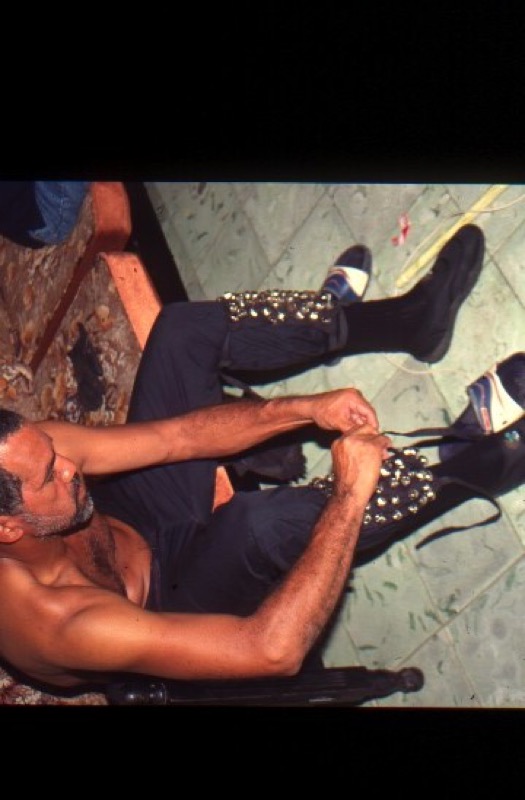


In this excerpt, Chavarría talks about his choice to play the devil role in the Congo tradition and shares his memories of how he came to play the role for the first time as a school-aged boy.
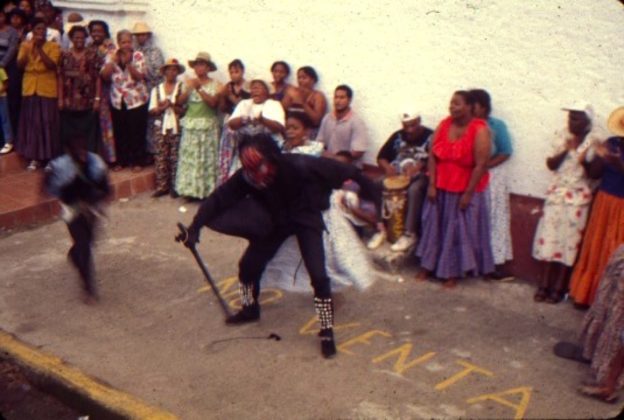
In this excerpt, Chavarría discusses the ways in which the Devil’s mask initially captured his attention and the double perspective/participant-observer position that it provides.
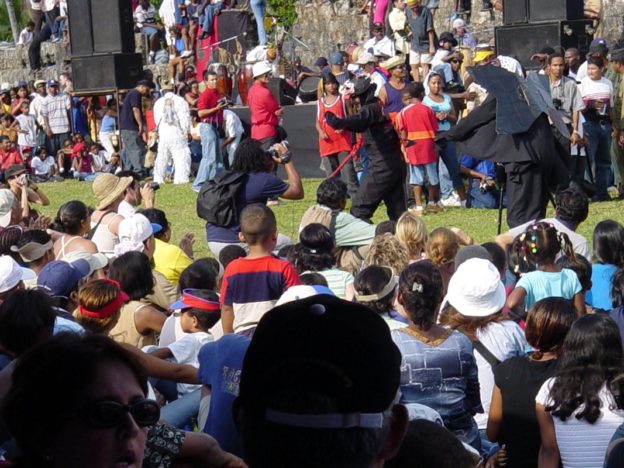
In this excerpt, Solís discusses the one-person performance that she created through her theater company to celebrate Celedonio and the Major Devil tradition of Portobelo, Panama.
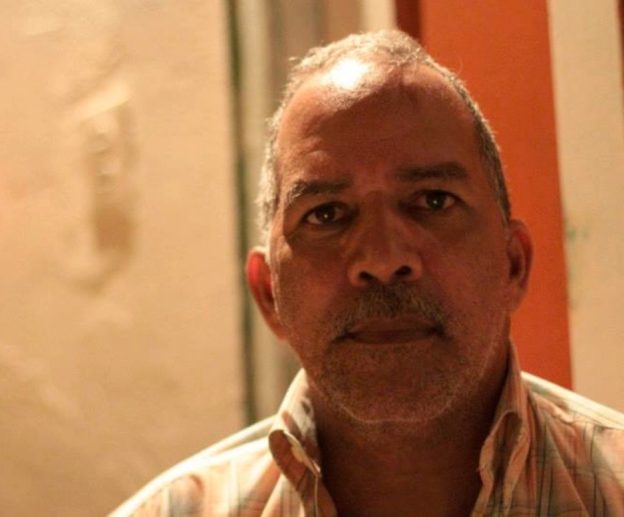
In this excerpt, Chavarría discusses how he imagines retiring as Major Devil.
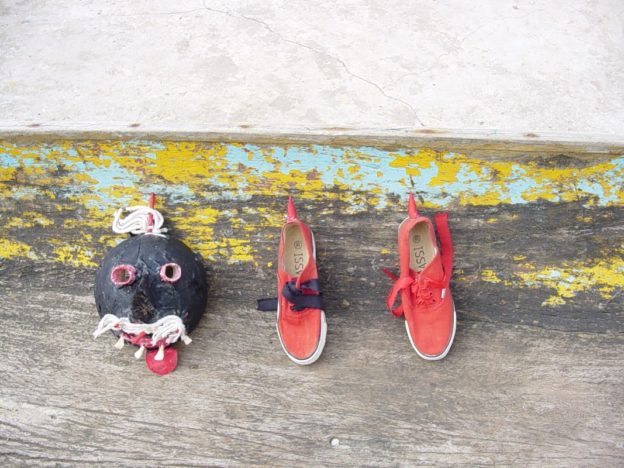
In this excerpt, Chavarría discusses his mentor Celedonio Molinar’s lasting legacy to the town and to the Congo tradition, including a charge to embrace the tradition with pride and joy.
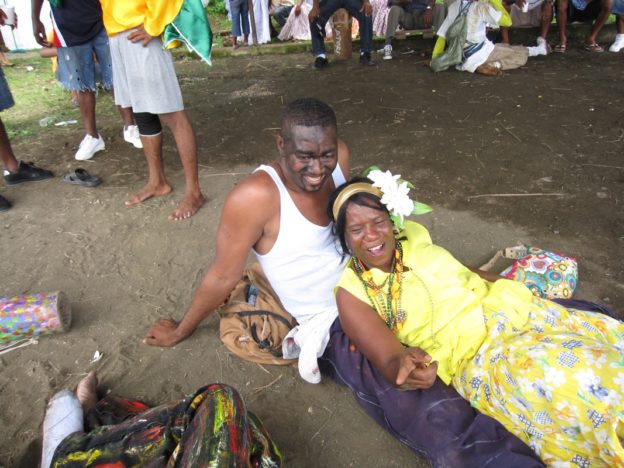
In this excerpt, Chavarría talks about the importance of the Congo tradition and Congo dance to the community’s sense of pride and self. He urges young people to maintain the power of their traditions and to stay anchored to their sense of “place” and home.
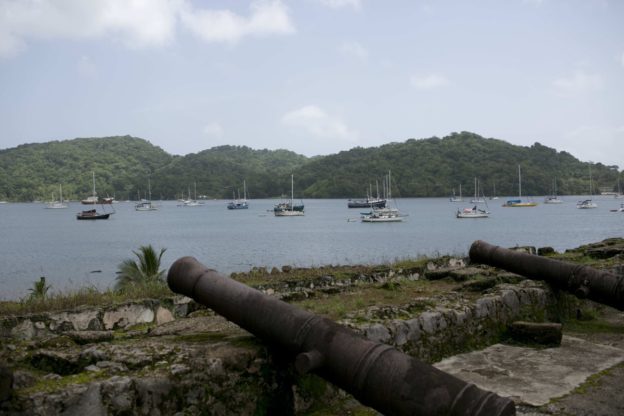
In this excerpt, Chavarría shares childhood memories about how the Congo tradition was enacted before “the road.” In the “closed” community people did not work during carnival season, pooled resources, shared food, and communed together for several days as part of their celebration.